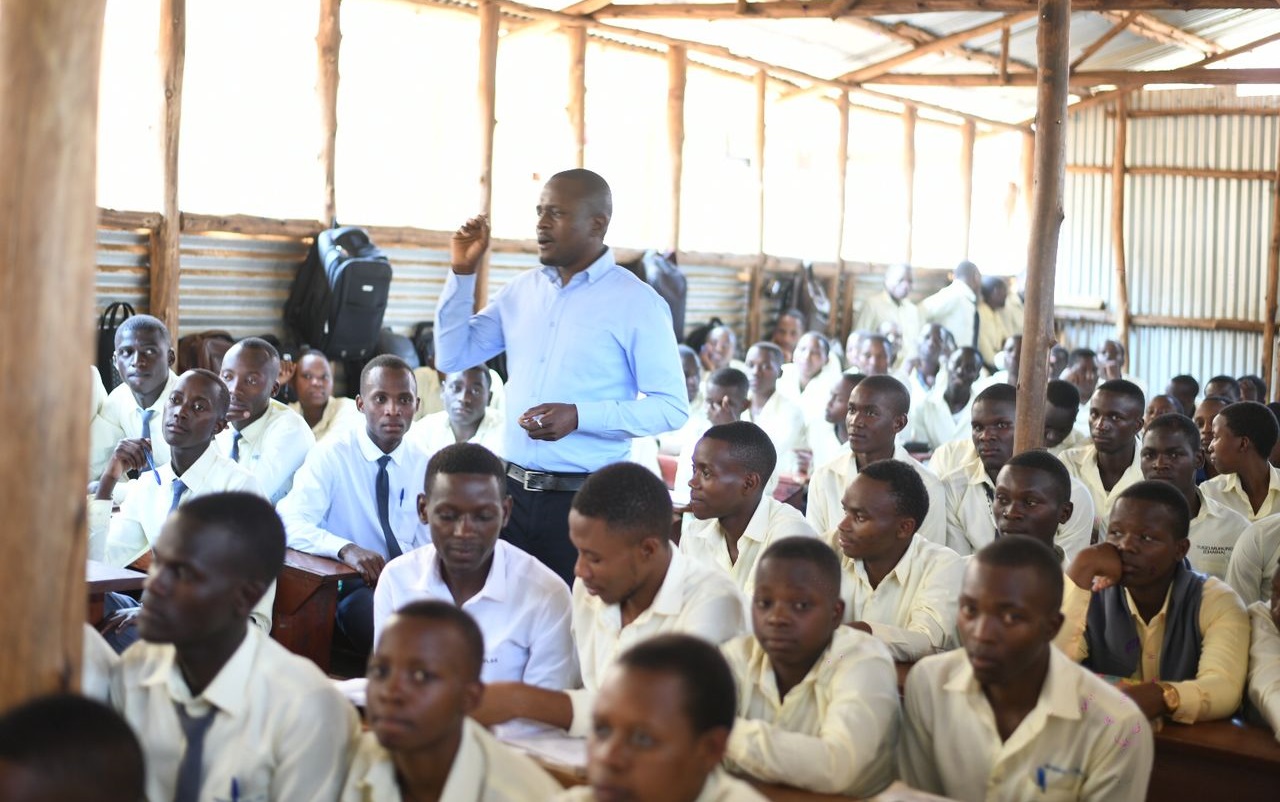
Kagadi Secondary School, a government-aided institution nestled in the heart of Kagadi town, occupies a modestly large piece of land.
However, it compensates for its size with a vibrant population of around 4,500 students this term. Among them, the two candidate classes, S.4 and S.6, contribute nearly 1,000 students, with S.4 alone accounting for 735 learners.
During the Kagadi tour of the Tujenge Uganda mobile tax office excursion yesterday, Ziadi Kakeeto, the Tax Education Ag Supervisor Outreach, engaged with the S.6 candidates, focusing on entrepreneurship.
All 186 students participated under the guidance of their educator, Edward Bainomugisa.
Ziadi aimed to introduce them to basic taxation principles before they transitioned to the workforce after their UACE. To his surprise, the students exhibited a commendable understanding of taxation topics, responding confidently to his questions.
Despite the students’ enthusiasm, a concerning issue emerged. Their responses indicated familiarity with a tax regime that doesn’t align with Uganda’s system.
For instance, when asked about known tax types, they mentioned terms like sales tax and sanctuary tax. This suggested a significant gap in their education and highlighted the need for URA to collaborate with the National Curriculum Development Centre (NCDC) and the Ministry of Education to integrate the updated entrepreneurship curriculum nationwide.
Fortunately, a solution is underway. In the 2021/22 financial year, URA, in partnership with NCDC, finalized and implemented a new entrepreneurship curriculum infused with taxation concepts.
This year, the tax education team conducted three training-of-trainers’ workshops. The first one took place in Nabbingo, attracting 160 technical school instructors, while last week, 120 secondary school teachers from the Rwenzori and Bunyoro sub-regions were trained at Canon Apollo Core PTC, Fort Portal.
Currently, a similar training for 120 teachers in the Kigezi region is ongoing at Kabale Bukinda Core PTC, running from March 18th to March 21st.
With continued support, the Tax Education Division and NCDC have the potential to equip thousands of entrepreneurship teachers across Uganda, fostering a better-informed future generation of taxpayers.
By Solomon Kimbugwe






No Comments yet!